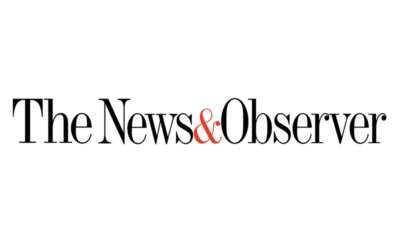WCH In the News
NC should proceed with caution opening K-12 schools during pandemic
Original article courtesy of The Fayetteville Observer.
Updated 11:41 AM ET, Feb. 15, 2021
Despite advocacy from government officials and parents alike, we urge caution in the reopening of public schools before the coronavirus pandemic is fully under control. We are especially concerned about the premature re-opening of schools in impoverished and flood-prone environments.
Years of deferred maintenance and infrastructure damage from adverse weather events have saddled schools in such areas with legacy pollutants and poorly functioning HVAC systems, creating, in the process, a sick-building syndrome. Prior to the COVID-19 pandemic, such facilities were crucibles for a host of building-related diseases that made K-12 students and staff sick. Now they are potential hot beds for the next wave of coronavirus infections.
This problem is due in large measure to delayed school building maintenance — a major issue in both low-wealth and minority communities with an inadequate tax base to fund major repairs and in states that refuse or fail to fund public schools adequately. According to the 2016 State of Our Schools report, “state and local governments spend $46 billion less than what is required to update and maintain their school facilities.”
Ensuring that ventilation systems operate properly, according to the CDC, is “a key consideration for schools seeking to reopen amid the COVID-19 pandemic.” In a recent report, the GAO “estimates that 4 in 10 [school] districts need to update or replace Heating, Ventilation, and Air Conditioning (HVAC) systems in at least half of their school buildings, which it projects to affect 36,000 schools buildings nationwide.”
Nowhere is this concern about reopening public schools more relevant than here in North Carolina. Research confirms that Black and brown children face a triple whammy of geographic disadvantages.
They tend to be concentrated disproportionately in counties and school districts where there is inadequate political and/or financial support for their education (936,000 or 41% of all students), and in neighborhoods characterized by hyper-segregation (944,000 or 41% of all students) and concentrated poverty (433,000 or 19% of all students). Moreover, as research also reveals, many of these young people live in multigenerational — and often overcrowded — households, known sources of potential coronavirus transmission.
Making matters worse, students in these triple-whammy communities often attend schools with the types of aging and rapidly deteriorating infrastructure that pose a risk to their health and wellbeing. In addition, more often than not, school-based supports — including access to nursing services — are insufficient to address the students’ physical and socio-emotional development needs, a situation exacerbated by elected officials’ refusal in some states to expand Medicaid.
A 2016 survey of school facility needs in North Carolina reportedly revealed that the state “needed to invest more than $8 billion in North Carolina schools by fiscal year 2020-2021.” Slightly over half (55% or $4.4 billion) is required to cover new school construction ($2.8 billion) and additions to existing schools ($1.6 billion) in mainly urban areas experiencing rapid population growth. Nearly all of the balance ($3.1 billion or 45%) is required to pay for urgently needed renovations of existing aging and rapidly deteriorating school buildings in mainly rural and low wealth counties in the state.
We should proceed with extreme caution in reopening public schools in impoverished districts with legacy pollutants and poorly functioning HVAC systems. Ignoring the sick-building problem and failing to take recommended ameliorative actions will constitute yet another potential crisis that, unfortunately, will adversely affect one of our state’s most precious resources: our children.
James H. Johnson, Jr. is a professor of strategy and entrepreneurship at UNC Kenan-Flagler Business School. Jeanne Milliken Bonds is a professor of the practice at UNC Kenan-Flagler Business School. Allan Parnell is Vice President of the Mebane, North Carolina-based Cedar Grove Institute for Sustainable Communities.
Other News
Germinating New Healthy Cross-Sector Collaborations
WCH In the News Germinating New Health Cross-Sector Collaborations Original article courtesy of Build Healthy Places Networkby Jacob KraybillApril 13, 2017 As part of the Healthy Communities Initiative blog series, we highlight the role of regional Federal...
When you can’t afford the cost of life: Redefining poverty’s parameters
WCH In the NewsWhen you can't afford the cost of life: Redefining poverty's parameters Original article courtesy of The News & Observer.May 8, 2022. Lars Dolder, Staff Writer. When Cherrelle Ramsey moved last year into an aging apartment near downtown Cary,...
Analysis: Addressing Our Rural Childcare Crisis
The pandemic has underscored the relationship between our childcare systems and our nation’s economic and social health. A North Carolina project looks at how we need to improve.




